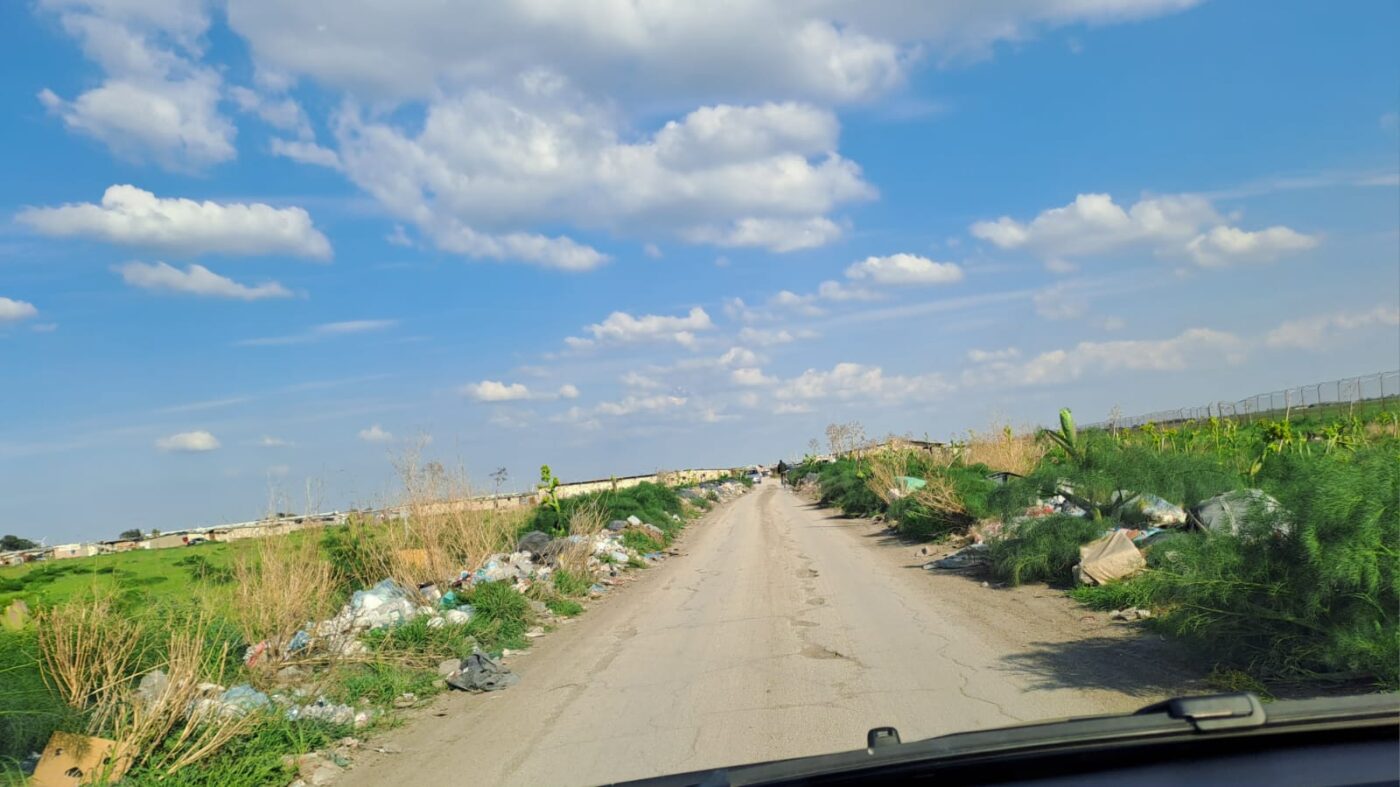Framing im-mobility in Borgo Mezzanone (Apulia)
At the core of one of the main productive districts of the agro-industrial sector in Europe, the one in the province of Foggia, migrants’ mobility is valorised and transformed into a productive factor.
Within this framework, the social reproduction of the labour force has become a key asset for the agricultural industry, which increasingly relies a low-cost work. A labour force which is now composed almost exclusively of migrant people.
Thus, the network of informal settlements – large and small – that has developed throughout the whole province, on the one hand, represents a bottom-up response to the dynamics of economic and racial housing exclusion that characterise the local housing market; on the other, it takes the form of the spatialisation of a vast network of social relations and solidarity from below. Within this framework, informal settlements for migrants are both segregative places where migrants can’t meet basic housing needs but are forced to stay, and spaces of encounter, hospitality, access to information and job opportunities through which it’s possible to keep people in and, at the same time, in movement.
That makes them crucial places to understand migrants’ mobility paths and their practices to accumulate resources along migration routes.
Here, Enrico Fravega, recently taken on in the SOLROUTES research team, is currently opening a new research fieldwork.




